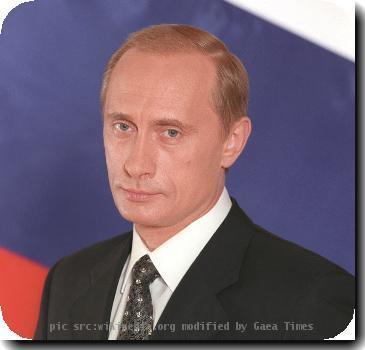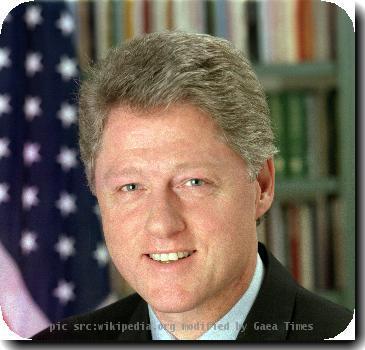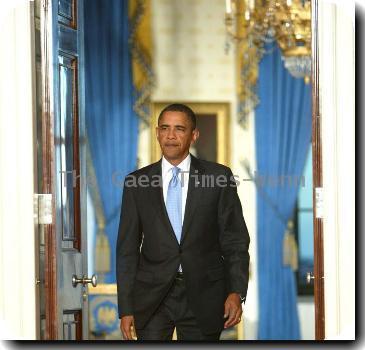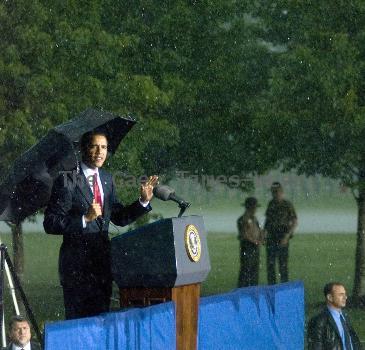Russia acknowledges its citizens are among suspected spies, calls for US understanding
By APTuesday, June 29, 2010
Russia: Suspected spies include Russian citizens
MOSCOW — Some of the suspected spies arrested in the United States are Russian citizens, Russia’s Foreign Ministry acknowledged Tuesday, but it insisted they did nothing to hurt U.S. interests.
The ministry statement said Russia is counting on the U.S. “to show proper understanding, taking into account the positive character of the current stage of development of Russian-American relations.”
Prime Minister Vladimir Putin delivered the same message during a meeting at his country residence with former President Bill Clinton, who was in Moscow to speak at an investment conference.
“I understand that back home police are putting people in prison,” Putin said, drawing a laugh from Clinton. “That’s their job. I’m counting on the fact that the positive trend seen in the relationship will not be harmed by these events.”
The Foreign Ministry would not say specifically how many of the 11 alleged deep-cover agents are Russian.
NTV television identified two of the defendants as Russian and showed their photographs from a social networking website. NTV said Mikhail Semenko had moved to the U.S. in 2008 and Anna Chapman, said to have an English husband, moved to the U.S. in February of this year. Both are in their late 20s.
The FBI announced the arrests of 10 suspects Monday, and an 11th person allegedly involved in the Russian spy ring was arrested Tuesday in Cyprus. Court papers said the operation goes back as far as the 1990s and many of the suspects were tracked for years.
Semenko and Chapman, however, were listed in a separate complaint and said to use their real names. Most of the other suspects were accused of using fake names and purporting to be U.S. or Canadian citizens while really being Russian.
They are accused of attempting to infiltrate U.S. policymaking circles while posing as ordinary citizens, some of them as married couples.
Oleg Gordievsky, a former deputy head of the KGB in London who defected in 1985, said Russia probably has about 50 deep-cover couples spying inside the United States.
Russian President Dmitry Medvedev would know the number of illegal operatives in each target country but not their names, the 71-year-old ex-double agent told The Associated Press in a phone interview Tuesday.
Countries often have a number of intelligence officials whose identities are declared to their host nation, usually working in embassies, trade delegations and other official posts.
Gordievsky, who spent nine years working in the KGB directorate in charge of illegal spy teams, said he estimates there are 400 declared Russian intelligence officers in the U.S., as well as up to 50 couples charged with covertly cultivating military and diplomat officials as sources of information.
He said the complexity involved in training and running undercover teams means Russia is unlikely to have significantly more operatives now than during his career.
“I understand the resources they have, and how many people they can train and send to other countries,” Gordievsky said. “It is possible there may be more now, but not many more, and no more than 60 (couples).”
The ex-KGB officer said deep-cover spies often fail to deliver better intelligence than their colleagues who work in the open.
“They are supposed to be the vanguard of Russian intelligence,” Gordievsky said. “But what they are really doing is nothing, they just sit at home in Britain, France and the U.S.”
The Foreign Ministry’s first reaction to the U.S. arrests was less amicable, and some senior Russian lawmakers said some in the U.S. government may be trying to undercut President Barack Obama’s warming relations with Moscow.
“These actions are unfounded and pursue unseemly goals,” the ministry said in a statement issued earlier Tuesday. “We don’t understand the reasons which prompted the U.S. Department of Justice to make a public statement in the spirit of Cold War-era spy stories.”
Foreign Minister Sergey Lavrov noted that U.S. authorities announced the arrest just days after Medvedev had visited the United States and met Obama at the White House.
“They haven’t explained to us what this is about,” Lavrov said at a news conference during a trip to Jerusalem. “I hope they will. The only thing I can say today is that the moment for doing that has been chosen with special elegance.”
Russia’s Foreign Intelligence Service refused to comment on the arrests of its alleged agents.
Nikolai Kovalyov, the former chief of the main KGB successor agency, the Federal Security Service, said some of the U.S. charges against the alleged spies resembled a “bad spy novel.”
Kovalyov, now a lawmaker, said the arrests were an attempt by some “hawkish circles” in the United States to demonstrate the need for a tougher line toward Moscow. Kovalyov added that Russian-U.S. ties will continue to improve despite the spy scandal.
“Our two great powers must stand together,” he said.
Some lawmakers suggested a tit-for-tat Russian response, but Kovalyov said Russia would reciprocate only “if the Americans don’t stop at that and risk evicting our diplomats,” the ITAR-Tass news agency reported.
Other senior Russian lawmakers also alleged that some in the U.S. government resented warmer ties with Russia.
“This was initiated, was done by certain people of certain political forces, who aren’t in favor of improving relations between Russia and the United States, and I feel deeply sorry about that,” Konstantin Kosachev, the head of the foreign affairs committee in the lower house, the State Duma, told Associated Press Television News.
“Not all of them support Obama’s policy,” Mikhail Grishankov, a deputy head of the Duma’s security affairs committee, told AP. “There are forces interested in tensions.”
Viktor Kremenyuk, a deputy head of the U.S. and Canada Institute, a Moscow-based think tank, said the spy case could threaten a planned ratification of a new nuclear arms reduction deal signed by Obama and Medvedev in April.
“That may change the atmosphere, that may change the attitudes among Americans toward Russia, (and) that may cause very significant political consequences,” Kremenyuk said.
In Britain, the case stirred memories of the country’s own illegal Soviet spy — Melita Norwood, a civil servant who spent about 40 years passing atomic research and other secrets to Moscow. Authorities ruled against prosecuting the elderly grandmother when she was exposed in 1992. Norwood died in 2005 at the age of 93.
Stringer reported from London. Associated Press writers Matti Friedman in Jerusalem and Lynn Berry, David Nowak, Masha Stromova, Oleg Yuriev and Khristina Narizhnaya in Moscow contributed to this story.
Tags: Anna Chapman, Arrests, Barack Obama, Bill Clinton, Eastern Europe, Embassies, England, Espionage, Europe, Ireland, London, Moscow, North America, Political Corruption, Political Issues, Russia, Russian Spies, Russian Spy, United Kingdom, United States, Vladimir Putin, Western Europe





